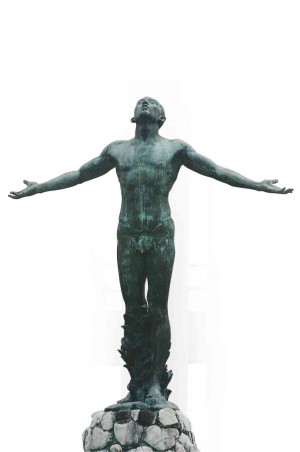Tuition not a hindrance to getting a UP education
 MANILA, Philippines–The cost of tuition is not an obstacle to getting an education at the University of the Philippines (UP) as reforms are being implemented to make studying in the state university within the reach of lower-income families, UP president Alfredo Pascual said on Wednesday.
MANILA, Philippines–The cost of tuition is not an obstacle to getting an education at the University of the Philippines (UP) as reforms are being implemented to make studying in the state university within the reach of lower-income families, UP president Alfredo Pascual said on Wednesday.
Pascual noted, however, that the number of UP College Admission Test (Upcat) passers from poor families has gradually decreased over the years, a trend which he said has nothing to do with the fees being charged by the university.
“Is education in UP a right? Definitely not. You have to be qualified to study in UP. Is money a barrier to study in UP? No. It’s not a barrier because if you cannot afford to pay the tuition, you don’t have to…,” he said in a media gathering at the Executive House in UP Diliman, Quezon City.
Pascual said they were taking steps to broaden the applicant base, including offering free review sessions online, setting up testing centers in the provinces and mobilizing regional campuses to get more poor students to pass the Upcat.
According to him, the state university is 80 percent funded by the government, with tuition accounting for just a small portion of its expenditures. UP also has reserve money generated from commissioned research studies and leased property, a move described by militant groups as tantamount to commercializing education.
For 2015, the university is seeking a budget of P24.45 billion, although this was reduced to P12.61 billion by the Department of Budget and Management in a proposal sent to Congress for approval.
With all these funds, however, Pascual brushed aside the possibility of a tuition rollback. “Why should we reduce it? Should we make studying in UP free? For what purpose? I have yet to be given the argument for that.”
“Tertiary education is not a right, it’s a privilege,” he stressed. “Go back to our Constitution, the state is encouraged to facilitate tertiary education but the commitment of our government in the Constitution is free education only up to high school.”
“Is there a [reason for putting a price on] what we offer? Of course. [What is] free is not something you take care of very well. If water is free, we’ll run out of water. Nobody needs to close the faucet anymore,” Pascual said.
According to him, tertiary education should be free, but only for poor but qualified students. “No qualified students [should be] denied access to UP education due to financial incapacity,” he stressed.
Under the liberalization of the student loan program last year, the percentage of the student fees which can be borrowed interest-free went up from 70-80 percent to 100 percent as long as it is paid within the semester. “Even if students have outstanding loans (from previous semesters), they can still enroll,” Pascual said.
He added that nonpayment over three semesters would result in a reclassification of the students’ income bracket and a corresponding discount.
UP Student Regent Neill John Macuha, however, assailed the policy when sought for comment on Thursday, saying, “In the first place, why not make tuition affordable to students?”
“There are costs you cannot count directly. We don’t see how the stress of worrying over how they would pay for their tuition affects students,” he said.
Macuha recalled that in a Board of Regents (BOR) meeting in July, he made a motion for a tuition rollback in line with the student organizations’ clamor to scrap all forms of socialized tuition.
“The Office of the Student Regent, together with the support of the majority of student councils across the UP System, maintains that the Socialized Tuition System is a form of de facto tuition increase and alienates those coming from low-income brackets in the university,” he said in a report to the BOR.
But according to Pascual, there was a “virtual reduction in tuition” as the annual family income cutoff for Bracket A was adjusted for inflation from P1 million to P1.3 million. “Without doing anything, you become Bracket B (with partial tuition discount),” he said.
“If they really want to broaden access to UP by poor families, why is the income cutoff for Bracket E (full discount) not included in the adjustment?” Macuha countered.
Pascual said more students were enjoying a full discount under the STS, from 2,654 last year to 3,134 as of Sept. 2.














